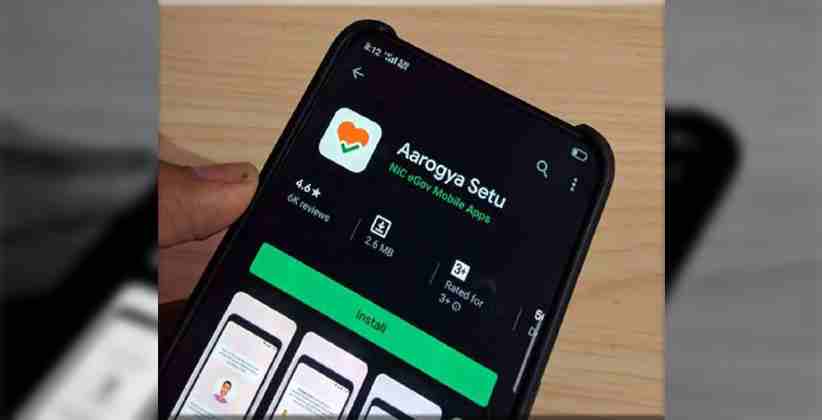Aarogya Setu - a mobile application launched on both Android and iOS platforms is a COVID-19 tracking system which keeps on the cases at the individual level and is thereby considered as a useful means for eliminating the virus. Developed by the National Informatics Centre which comes under the Ministry of Electronics and Information Technology, the app was launched during the first phase of lockdown (from 25th March 2020 to 14th April 2020) and has been used by the Government ever since to gather relevant data.
The mobile application (available on Google Play Store on Android smartphones and App Store for iPhones), helps individuals track the coronavirus infection by using the smartphones GPS and Bluetooth and provides information that will help in determining if at all one has been near a COVID-19 infected person.
It uses the devices location to understand whether the user comes under the infected areas and also accesses the Bluetooth to determine if he or she has been within six feet from the infected person.
In a directive issued on Friday, 1st May 2020 as part of the third phase of lockdown, the Ministry Of Home Affairs (MHA) stated that the use of Aarogya app shall be made mandatory for all employees, both public and private and that head of the respective organizations to ensure 100% coverage of this app among the employees.
The move, however, has posed several questions on data privacy. According to Tech experts, the Governments decision to make the app compulsory may lead to a series of legal issues. It can cause anticipation or actual misuse of the data which is currently being collected (to stop the spread of the virus) for various other unsolicited reasons.
According to Pavan Duggal, one of the top cyber law experts in the country, there is no law passed by the Parliament authorizing the creation and mandate of this app. This could mean a contravention to the Information Technology Act, 2000. And while it can be used as an emergency measure for tracing Covid-19 patients, it could give rise to various legal challenges for the government.
Information Technology Act, 2000 provides for legal recognition for transactions carried out using electronic data exchange and other means of electronic communication. In the case of KS Puttaswamy vs. Union of India, popularly known as Aadhar card case, a nine-judge bench of the Supreme Court of India passed a historic judgment affirming the constitutional right to privacy. It declared privacy to be an integral component of Part III of the Constitution of India which lays down our fundamental rights, ranging from rights relating to equality (Articles 14 to 18); freedom of speech and expression (Article 19(1)(a)); freedom of movement (Article 19(1)(d)) and personal liberty (Article 21) and others.
Former Congress President Rahul Gandhi also commented on the issue of privacy associated with the mandatory use of the Aarogya Setu app. He quipped that with no institutional checks in place, the move is bound to raise data and privacy concerns for the citizens. The Aarogya Setu app is a sophisticated surveillance system, outsourced to a private operator, with no institutional oversight - raising serious data security & privacy concerns. Technology can help keep us safe, but fear must not be leveraged to track citizens without their consent, tweeted Rahul on Saturday, 2nd May 2020.
More than 100 individuals and around 45 organizations on Saturday wrote to PM Narendra Modi, Home Minister Amit Shah, and IT Minister Ravi Shankar Prasad protesting against the compulsory usage of Aarogya Setu app for workers in both Public and Private Workplaces.
As of today, Government representatives have largely denied these issues and termed the concerns as baseless, while further clarifying that the App and its use will only in place until the pandemic ends.








